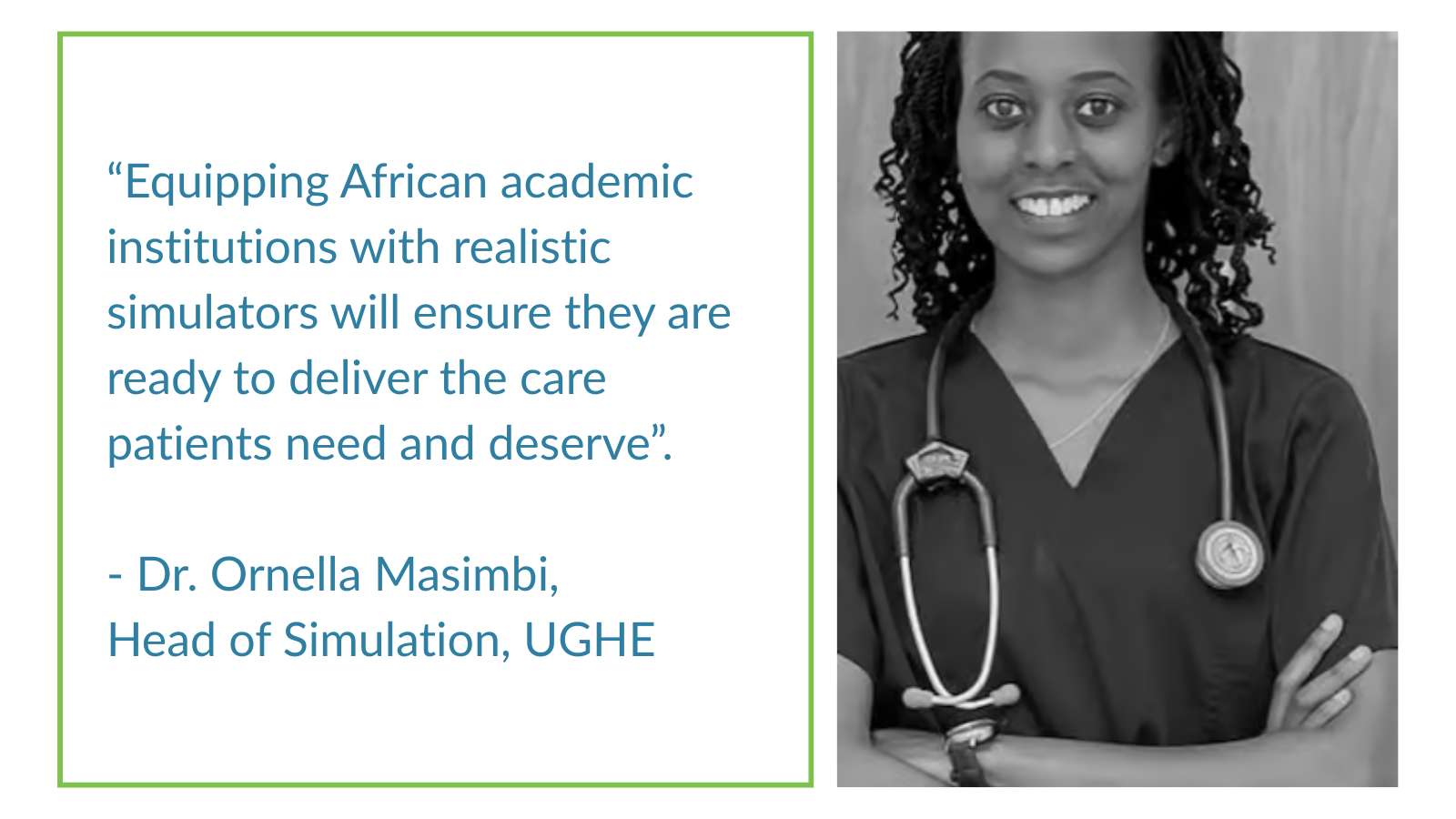The power of quality simulation training
An exploration into simulation at its best
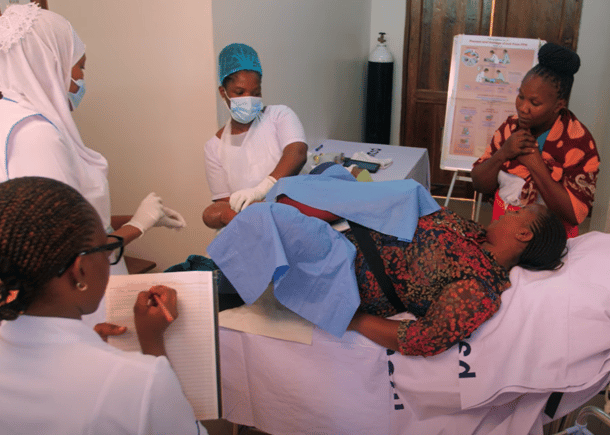
An exploration into simulation at its best

Across conversations with partners — from NGOs to Ministries of Health — one message is clear: simulation-based training is making a real impact. The Safer Births Bundle of Care program in Tanzania is a powerful example, showing a 40% drop in early newborn deaths and a 75% reduction in maternal deaths.
Lead researchers Dr. Hege Ersdal and Dr. Benjamin Kamala have shared these results at global conferences, and we’re excited to offer exclusive access to a video of Hege’s keynote speech. Her message is clear: simulation works best when it’s regular, on-site, and supported by local champions and mentors.
Inspired by the success of programs like the Safer Births Bundle of Care, we’re committed to developing solutions that complement our physical simulators — ensuring the highest quality simulation training and lasting impact where it’s needed most.

In our latest Partner Q&A, we spoke with Kjetil Torgeirsen PhD fellow and training programs leader at the SAFER simulation center in Stavanger, Norway about how his work and research informs to best practices in simulation-based training and education.
Kjetil shares how the evidence-based program, SimBegin, has been used in the Safer Births Bundle of Care program to foster a culture of safe learning, improve outcomes, and serve as an example of simulation training at its best.
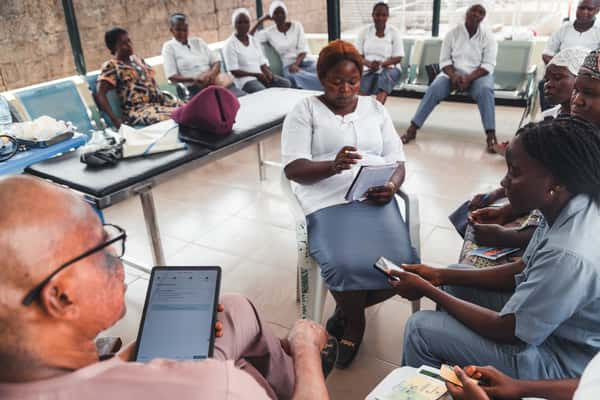
This easy-to-use digital tool supports facilitators to confidently lead high-quality simulation-based training for healthcare providers. It offers structured guidance for facilitators, through each phase of training- briefing, simulation, and debriefing – making it easier for both new and experienced trainers to deliver effective sessions.
LIFT Scenarios helps institutions strengthen their training programs, in turn improving quality of care.
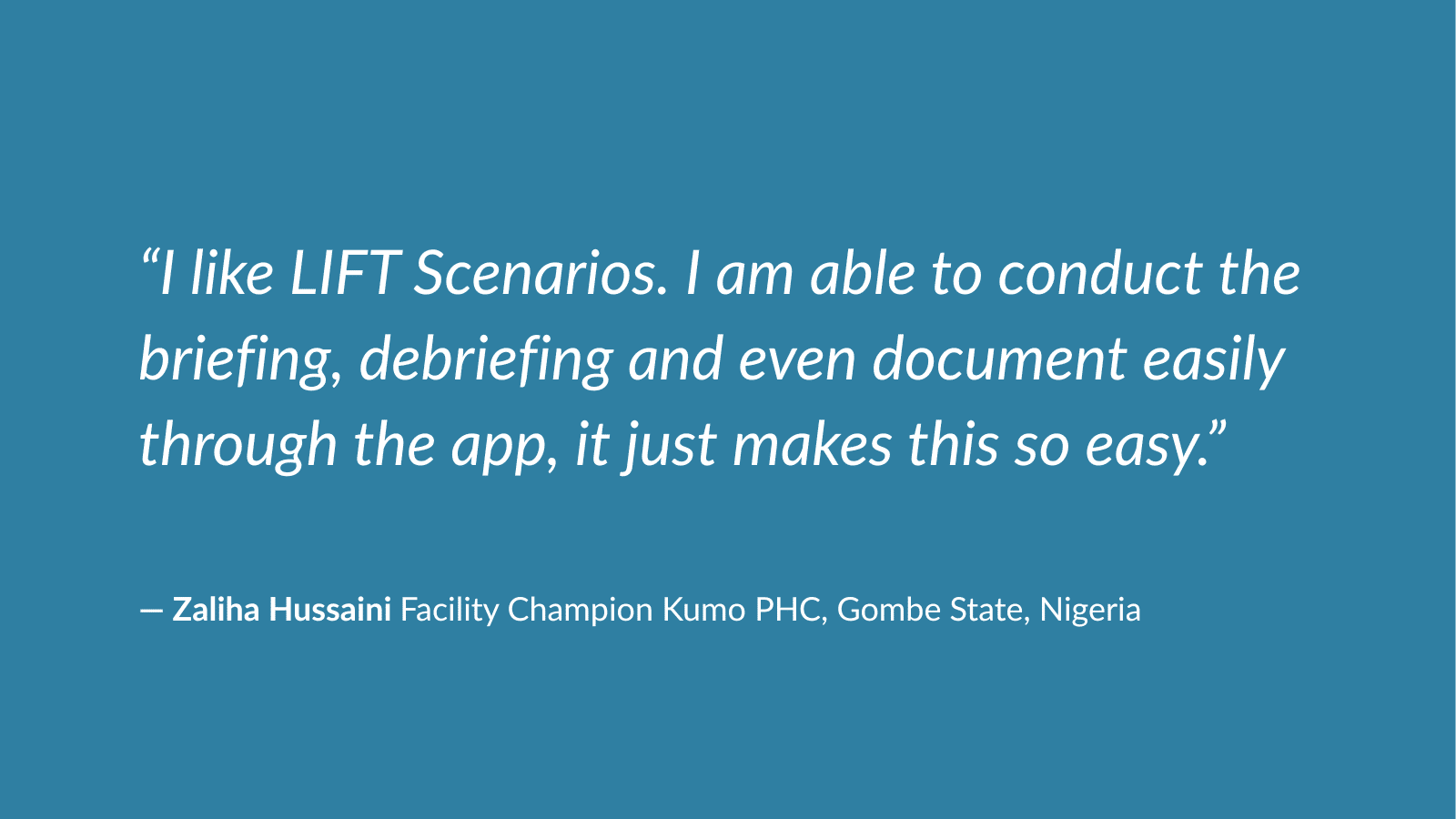
LIFT Scenarios is validated in over 150 health facilities in Tanzania. By the end of 2024, more than 10,000 practice sessions were completed in Tanzania—and today, that number has grown to over 20,000 sessions across Nigeria, Nepal, and Tanzania.
To support the delivery of the highest quality simulation training, the SimBegin program – a simulation facilitation course – is recommended. Those purchasing SimBegin Level 1 will automatically gain access to LIFT Scenarios Starter.
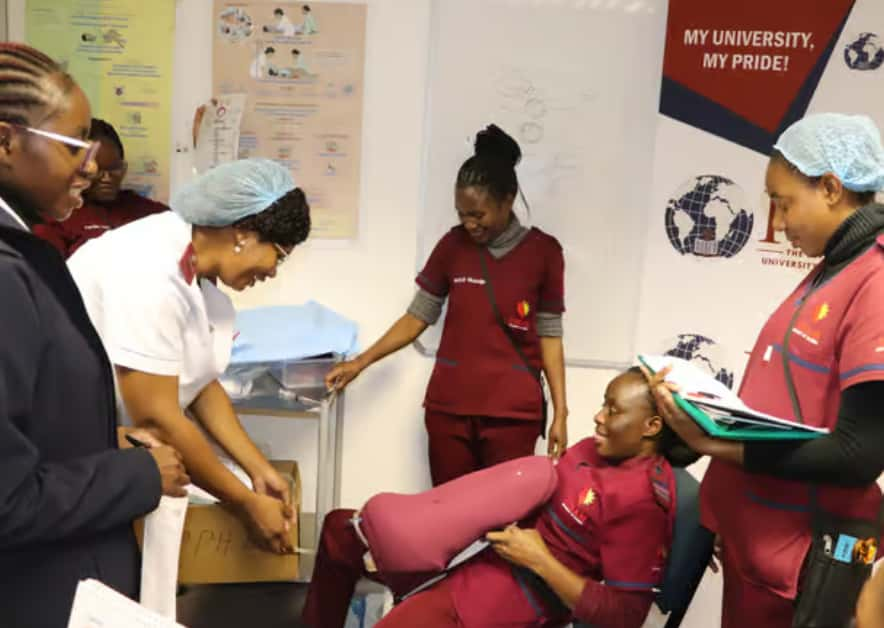
As part of a recent Buy One Gift One initiative in collaboration with the International Confederation of Midwives, MamaNatalie birthing simulators and Helping Mothers and Babies Survive educational materials were allocated to high-impact projects worldwide. One of the recipients was a project to train midwives, nurses, interns, and medical officers to manage post-partum hemorrhage (PPH) in Namibia.
Post-partum hemorrhage is a leading cause of maternal deaths globally, with Namibia reporting a maternal mortality rate of 139 per 100,000 live births (WHO, April 2025), well above the Sustainable Development Goal (SDG 3) target reduction to 70 per 100,000 by 2030.
Through another Buy One Gift One collaboration, the University of Global Health Equity (UGHE) and Laerdal Global Health (LGH), allocated nearly 900 birthing simulators to improve hands-on learning opportunities at 56 educational institutions in 13 African countries.
The initiative received 69 applications from 18 countries following its launch at the ‘Advancing Medical Education Africa’ conference in Kigali, Rwanda. The simulators are expected to arrive at institutions by late 2025 for use in their educational programs, ultimately improving maternal and newborn care in resource-limited settings.
